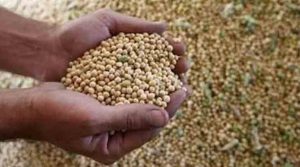Import Of Crushed Genetically Modified (GM) Soybean:

The Union government has decided to allow the import of crushed genetically modified (GM) soybean, which is a major ingredient of poultry feed.
- The poultry industry has been crushed by multiple disasters over the last year and a half.
- In January 2020, a false rumour that COVID-19 could be spread by eating chicken meat led to a crash in demand.
- A year later, avian flu cases led to another crash, followed by a crippling rise in the prices of poultry feed.
- Besides, over the last three to four years, soy meal has been available at an average cost of ₹34 to 36/kg. This month, it shot up to ₹96/kg (Soy meal is the main protein ingredient in the feed).
- Environmental activists have raised concerns about the permission given for something derived from a genetically modified plant to enter the human food chain, given that India’s regulatory system has yet to approve GM foods.
- Besides, the 1989 rules of the Environment Protection Act applied not just to GM organisms, but also products and substances thereof.
- A GM or transgenic crop is a plant that has a novel combination of genetic material obtained through the use of modern biotechnology.
- GM crop can contain a gene(s) that has been artificially inserted instead of the plant acquiring it through pollination.
- The Genetic Engineering Appraisal Committee (GEAC) is the apex body that allows for commercial release of GM crops.
- Use of the unapproved GM variant can attract a jail term of 5 years and fine of Rs. 1 lakh under the Environment Protection Act, 1986.
- Food Safety and Standards Authority of India (FSSAI) is the authorised body to regulate the imported crops in India.
- India allows the import of GM soybean and canola oil. Import of GM soya bean seeds was so far not approved in India.




